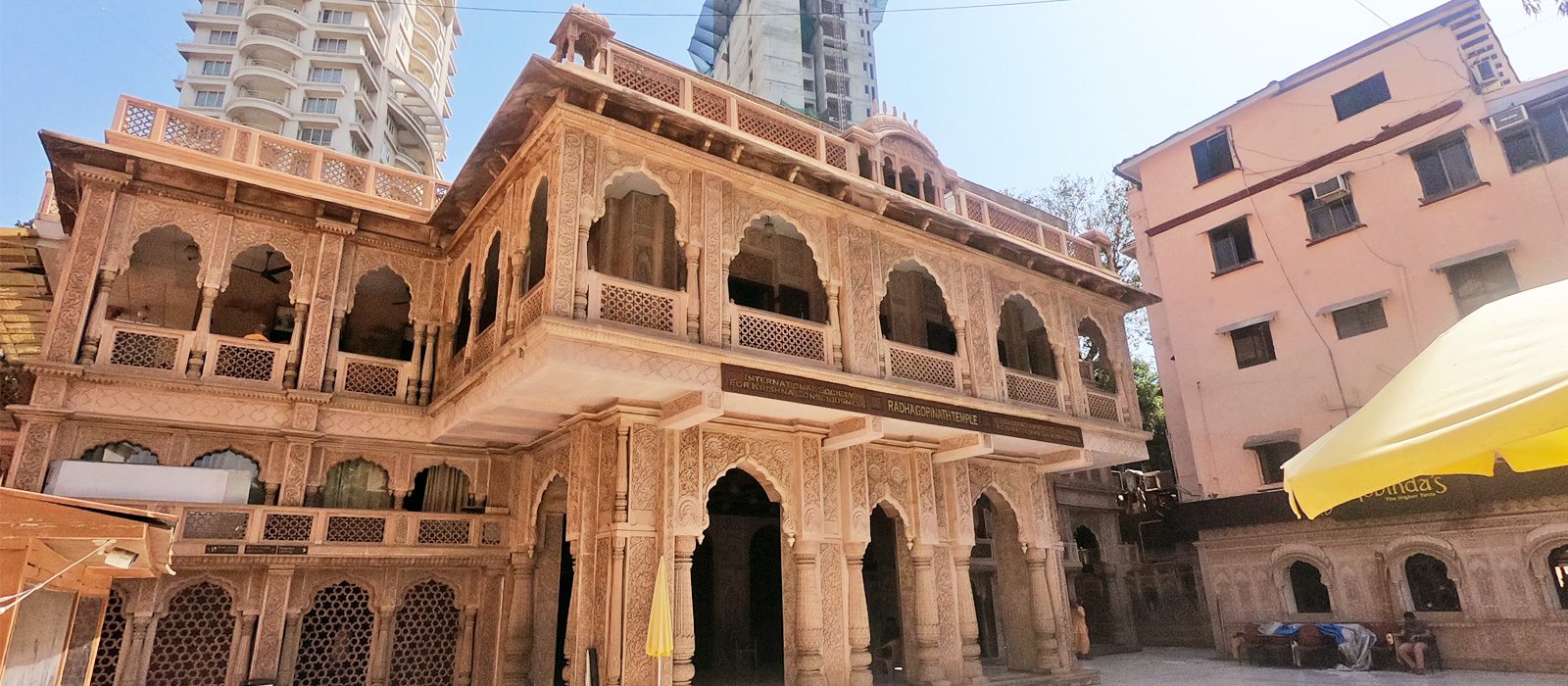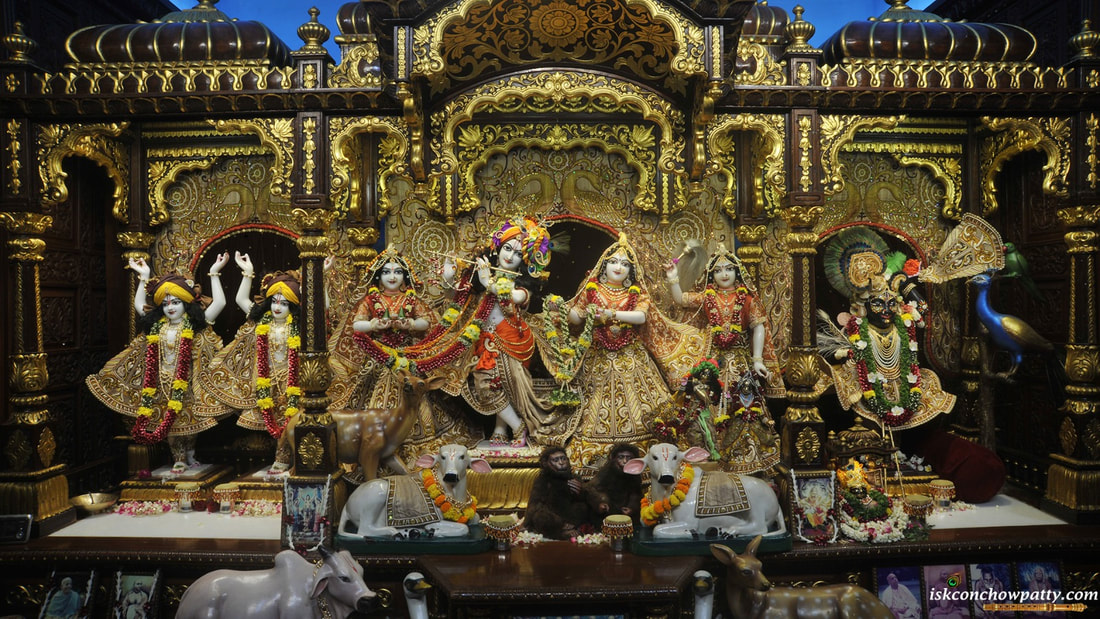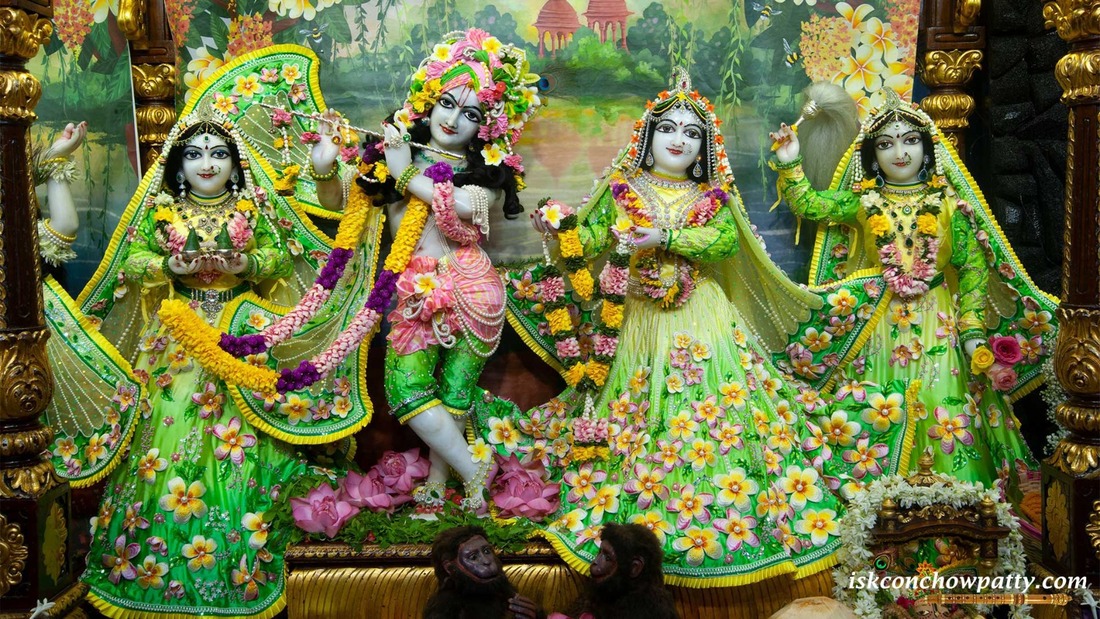It was the first time that I visited this community as a preacher - I was always desiring to get the association of these wonderful devotees, but somehow it never happened. Finally the opportunity came about, and I was well taken care of, with my visit being exceptionally well coordinated.
On all other six days I offered well-attended house programs every single evening throughout the whole week. I was impressed how eager the devotees are to assemble and hear - even on working days! And most of the congregational devotees are professionals who work long hours! I had never experienced such eagerness anywhere else in the world! Undoubtedly, these devotees have a taste for sravanam kirtanam and set it as their first priority in life....!
And of course, every house program ended with nice prasadam - an important part of any Vaishnava gathering...
Serving prasadam in a cultured manner is an important part of our Vaishnava life. After all, prasadam is non-different from Krishna Himself, and is meant to be respectfully honoured – not simply devoured. The best feast may be ruined if the distribution is not nicely coordinated – in a temple, as well as when serving guests in our home.
Besides, a Vaishnava host will only eat once his guests are fully satisfied and have finished their meal – he will never eat before that. Satisfying a guest is the highest principle of Vaishnava hospitality. It is considered the biggest calamity and misfortune for a host if a guest leaves his home
unsatisfied – if the guest would have liked to enjoy another samosa, and there was unfortunately none left because of the host and his family having eaten the last one! This would be a most shameful and condemned situation – the greatest tragedy which invites inauspiciousness to one’s home.
Therefore, all family members of the host must help serve prasadam to the guest – even if there is only one visitor. I have experienced this culture in Bangladesh: Everyone sits around the guest and engages in light conversation, keeping him company – sometimes laughing and joking with him, while filling up his plate again and again. It is always a very jolly and loving atmosphere. And because they cook so many preparations, the host is very busy serving his guests with all attention – he simply wouldn’t have the time to sit down and eat! They would never ever do this. It would be considered terribly uncultured – literally unimaginable.
If a guest asks for another chapati and there is none left, the host runs into the kitchen and starts making fresh dough to make more. One must be very cautious in expressing one’s desires if one does not want to create an embarrassing situation for one's host. If a guest asks for something which the host has not prepared, the visitor is not allowed to leave the home until they have cooked it, offered it to the Lord, and then to the guest. Such is the sweetness of Vaishnava culture – a culture which promotes serving others in selflessness and generosity.
After the guests are fully satisfied, the host asks their permission to also take his meal. This is expressed in the purport to the Srimad- Bhagavatam (3.4.1):
"In ceremonies when brahmanas and Vaishnavas are sumptuously fed, the host partakes of the remnants of foodstuff after the guest has given permission. So the descendants of Vrisni and Bhoja formally took permission from the brahmanas and ate the prepared foodstuff."
I have been to some Vaishnava-seva programs in Bangladesh, to which many brahmacharis were invited to take lunch at a grihastha’s house – a huge feast with many pots of different preparations.
At the end of one such feast, there was only dry rice left for the hosts – everything else was gone. And with great joy, they ate the dry rice, becoming ecstatic about how much their visitors had eaten! It is a cause for the greatest satisfaction and elation for a host if his guests have savoured their preparations and enjoyed them to the fullest. They consider it to be a satisfaction that is far beyond the joy of eating the pradadam themselves.
On the 19th of October I moved on to Vrindavan....
Your servant, Devaki dd
Please visit www.theholynameretreat.net
www.therootsofspiritualculture.net
https://www.facebook.com/instituteforspiritualculture/





 RSS Feed
RSS Feed
